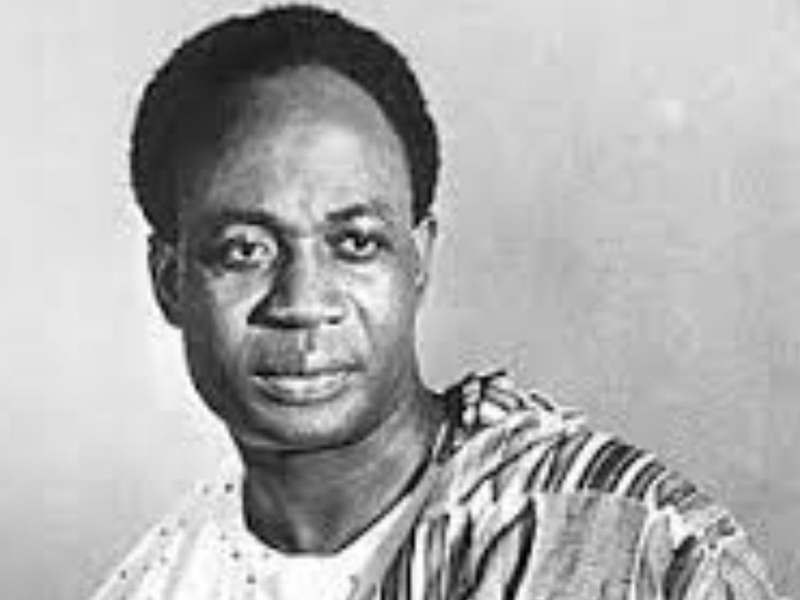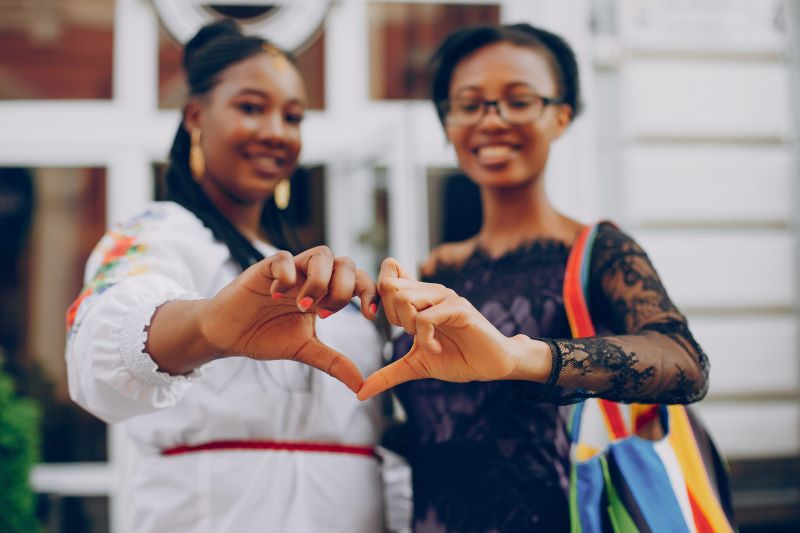Happy Independence Day to Ghana! On this day, March 6th, in 1957, Ghana gained independence from the British. Let’s take a look at the courageous leader who led the country’s struggle for independence, and who became the first Prime Minister and President of Ghana: Osagyefo (Redeemer) Kwame Nkrumah.
Kwame Nkrumah was born in Nkroful, in the Western Region of Ghana. He is of the Nzema tribe. After completing Achimota College in 1930, Nkrumah traveled to the United States to further his education. He spent his years abroad living in Philadelphia, schooling at Lincoln University and UPenn, organizing with leaders and meeting other people of the African Diaspora. These experiences further developed his understanding of the struggles of the African diaspora. He also studied theories of socialism, including Marxism and Leninism, and the ideologies of Marcus Garvey.

(Accra Central, Accra, Ghana)
In 1945, he traveled to Europe and helped organize the 5th Pan-African Congress in Manchester, where he and other leaders planned decolonization efforts. This event catalyzed African diaspora leaders’ voyages to independence, including that of Nkrumah, and Jomo Kenyatta of Kenya. Other notable attendees included W.E.B. Dubois (who would later relocate to Ghana and advise Nkrumah), George Padmore, a Trinidadian freedom fighter, and Amy Ashwood Garvey, the wife of Marcus Garvey,
Nkrumah collaborated with five other main leaders of Ghana to crusade for independence. These leaders included Edward Akuffo-Addo, Ebenezer Ako-Adjei, Joseph Boakye Danquah, William Ofori-Atta and Emmanuel Obetsebi-Lamptey. Together, they became known as the “The Big Six”. The Big Six, also known as the Founding Fathers of Ghana, are commemorated on the country’s currency, the Ghana Cedi. With Kwame Nkrumah’s efforts, Ghana became the first country in Southern Saharan Africa to gain independence from colonial rule. Upon the country’s independence, Nkrumah renamed Gold Coast, ‘Ghana’, as a homage to the Ancient Ghana empire, which translates to ‘Warrior King’ in the Soninke language.

(1 Ghana Cedi)
In 1966, while visiting Beijing, Nkrumah was overthrown by the Ghana police and army via a coup d’etat. Citizens had grown concerned about his authoritarian rule, and other issues such as food shortages exacerbated their worries.
Today, Ghana maintains a reputation as one of the most peaceful countries on the continent. Kwame Nkrumah’s daughter, Samia Nkrumah, continues his legacy through engaging in the current political sphere of the country.





